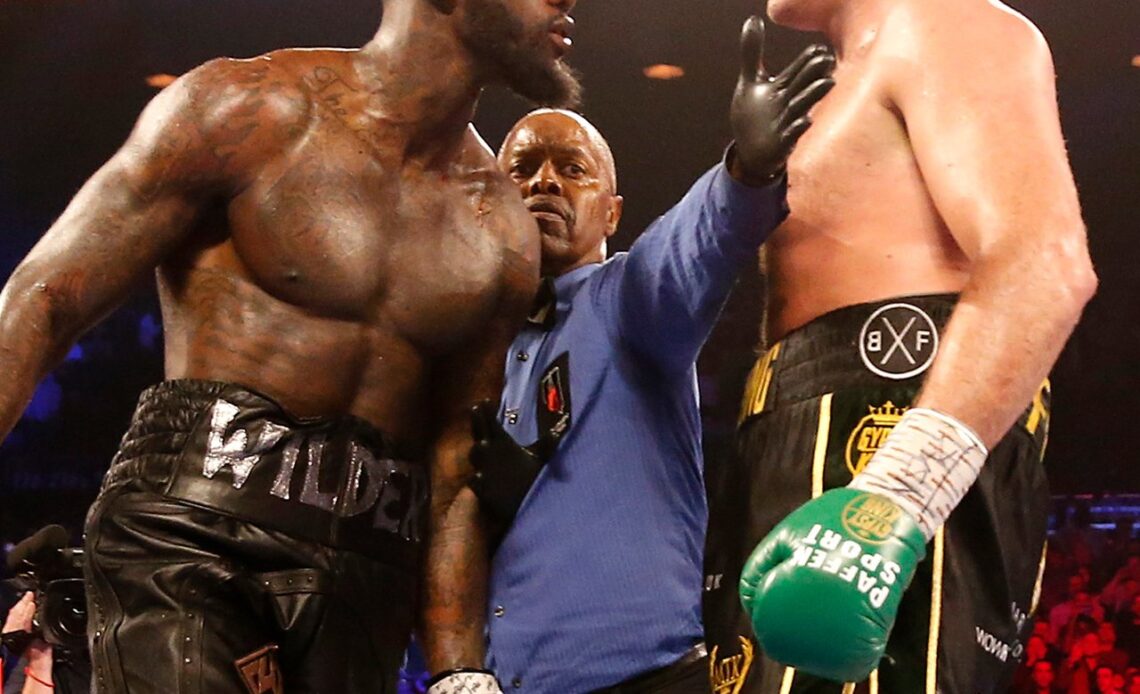In the world of heavyweight boxing, few rivalries have captured the imagination of fans quite like the trilogy between Tyson Fury and Deontay Wilder. These two fighters, each representing a unique style and persona, emerged as the defining faces of modern boxing. Their battles were not just about punches and knockouts; they were a clash of ideologies, personalities, and sheer willpower.
Tyson Fury, the “Gypsy King,” is known for his unorthodox fighting style, incredible ring IQ, and larger-than-life personality. Standing at 6’9″ with a reach that seems almost otherworldly, Fury brought a cerebral approach to boxing that was rarely seen in the heavyweight division. His ability to adapt, taunt, and outthink opponents made him a formidable force in the ring.
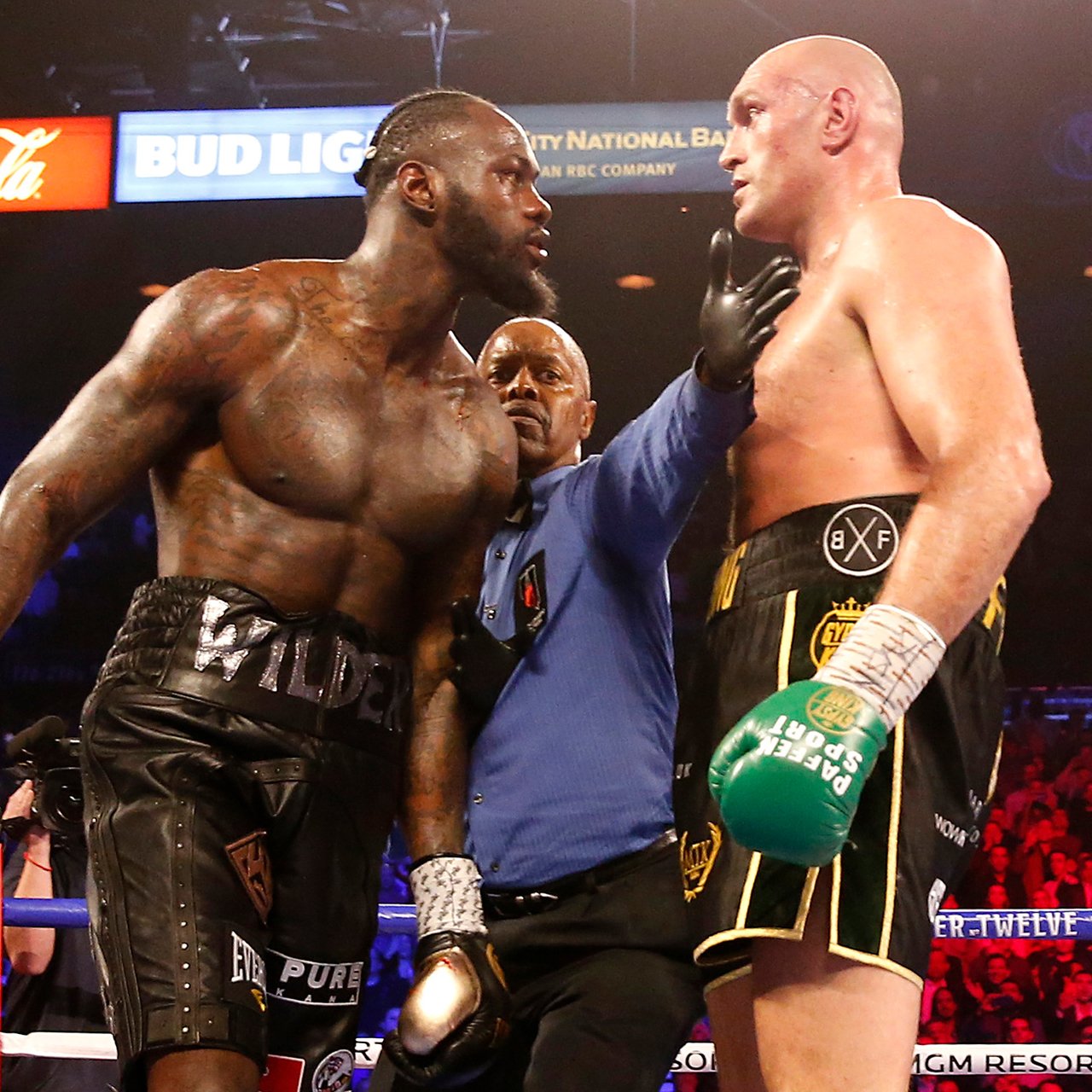
Deontay Wilder, on the other hand, was the embodiment of raw power. Nicknamed the “Bronze Bomber,” Wilder possessed one of the most devastating right hands in boxing history. With a record of 42 knockouts in 44 wins before their first fight, Wilder was a knockout artist who relied on his explosive strength and athleticism to dismantle opponents.
When these two giants met in the ring, it wasn’t just a battle for supremacy—it was a clash of eras, styles, and legacies. The Fury vs. Wilder trilogy would go on to become one of the most talked-about rivalries in boxing history, leaving an indelible mark on the sport.
The first chapter of this epic saga took place on December 1, 2018, at the Staples Center in Los Angeles. Fans from around the world tuned in to witness what many believed would be a straightforward victory for either fighter. However, the outcome was anything but predictable.
From the opening bell, Fury showcased his superior footwork, head movement, and defensive prowess. He repeatedly frustrated Wilder with his elusive tactics, making it difficult for the Bronze Bomber to land his signature power shots. Despite being outweighed and outmaneuvered, Wilder managed to floor Fury twice—once in the ninth round and again in the twelfth round with a brutal combination that left Fury sprawled on the canvas.
Miraculously, Fury rose to his feet both times, defying the odds and showcasing his resilience. When the final bell rang, the judges’ scorecards delivered a split decision draw, leaving both fighters and fans unsatisfied. While Fury appeared to have done enough to win, the controversial result only fueled the fire for a rematch.
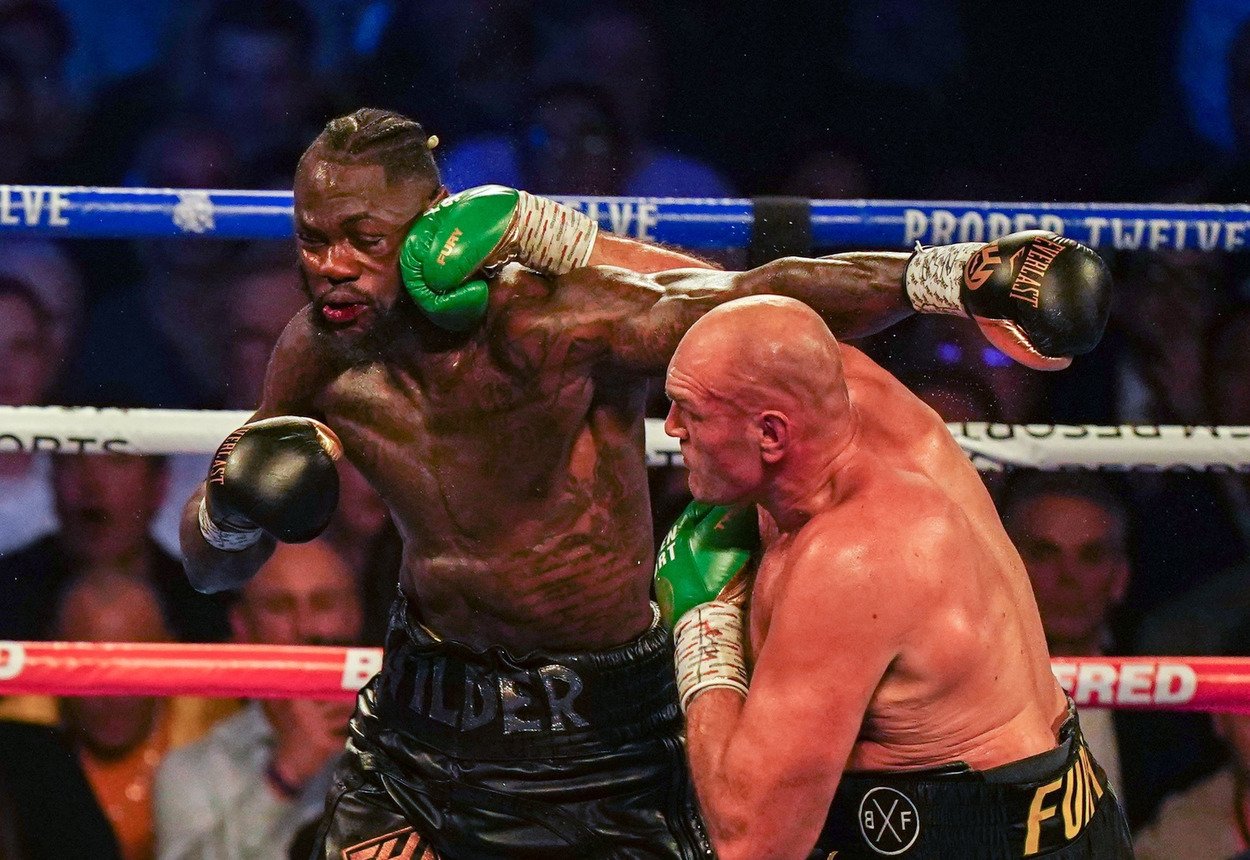
The second fight, held on February 22, 2020, at the MGM Grand Garden Arena in Las Vegas, was a stark contrast to their first encounter. This time, Fury entered the ring with a clear game plan and executed it flawlessly. Gone was the playful demeanor of the first fight; Fury was laser-focused and determined to prove his superiority.
From the outset, Fury controlled the pace of the fight, using his jab effectively and cutting off the ring to limit Wilder’s movement. By the seventh round, Wilder was visibly exhausted, his face swollen and his body battered. Sensing the end was near, Fury unleashed a barrage of punches that forced Wilder’s corner to throw in the towel, ending the fight prematurely.
The victory marked Fury’s ascension as the undisputed king of the heavyweight division, while Wilder suffered the first loss of his professional career. The rematch solidified Fury’s status as one of the greatest heavyweights of all time, but it also set the stage for a third and final showdown.
After months of negotiations and delays due to the COVID-19 pandemic, the highly anticipated third fight finally took place on October 9, 2021, at the T-Mobile Arena in Las Vegas. Dubbed “The Trilogy,” this bout promised to deliver everything fans had come to expect from Fury and Wilder: drama, excitement, and unforgettable moments.
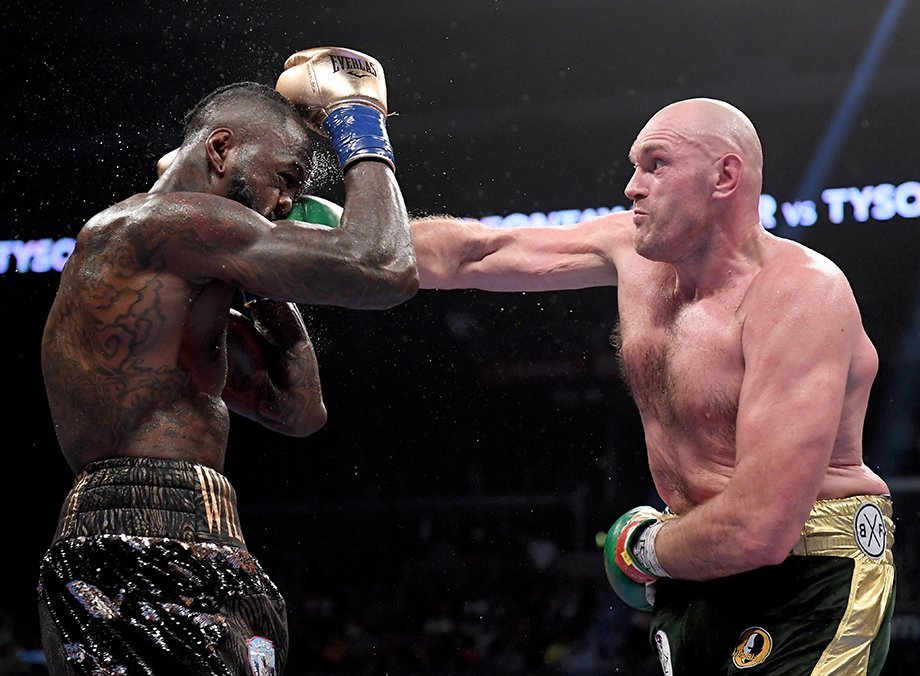
The fight lived up to its billing in every way possible. Wilder came out aggressively, landing several powerful right hands early in the fight. In the fourth round, he sent Fury crashing to the canvas with a thunderous right hook. It seemed as though Wilder might reclaim his throne, but Fury, true to his resilient nature, rose once again.
As the fight progressed, Fury began to assert his dominance, using his size and technical brilliance to wear down Wilder. By the tenth round, Fury landed a series of devastating uppercuts and hooks that left Wilder unable to continue. Referee Russell Mora stepped in to stop the fight, handing Fury a decisive knockout victory.
The trilogy concluded with Fury emerging victorious in two out of three fights, cementing his legacy as one of the greatest heavyweights in boxing history. For Wilder, it was a bitter end to a rivalry that had defined much of his career, but his courage and determination earned him respect from fans worldwide.
The Fury vs. Wilder trilogy transcends the boundaries of boxing. It represents the essence of competition, resilience, and human spirit. Here are several reasons why this rivalry will forever be etched in the annals of sports history:
Each fight in the trilogy delivered its own share of twists and turns. From Fury’s miraculous recovery in the first fight to Wilder’s explosive knockdowns in the third, the series kept fans on the edge of their seats. The unpredictability of the outcomes ensured that no one could look away.
Fury and Wilder couldn’t have been more different in terms of fighting styles and personalities. Fury’s tactical brilliance and psychological warfare clashed with Wilder’s brute force and unwavering confidence. This contrast added layers of intrigue to their matchups, making them must-watch events.
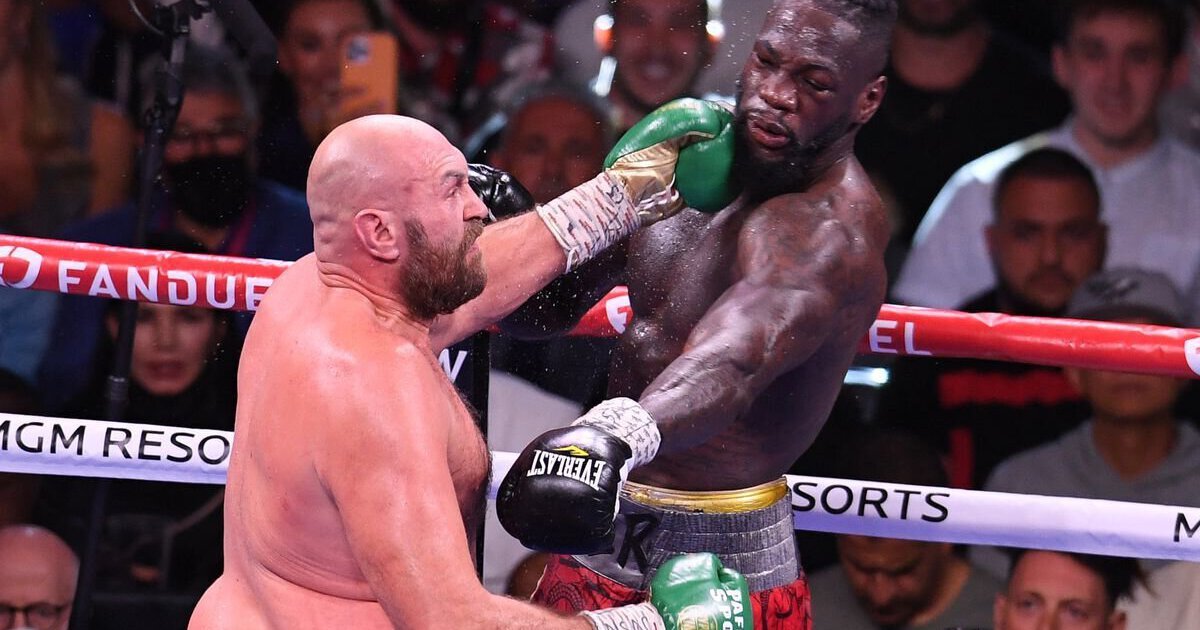
The trilogy revitalized interest in heavyweight boxing, drawing millions of viewers and generating significant revenue for the sport. It proved that boxing could still produce marquee events capable of captivating global audiences.
Beyond the punches and knockouts, the rivalry taught valuable lessons about perseverance, humility, and redemption. Fury’s journey from mental health struggles to becoming a champion inspired countless individuals, while Wilder’s determination to overcome adversity resonated deeply with fans.
Following the conclusion of the trilogy, both fighters embarked on new chapters in their careers.
Tyson Fury announced his retirement shortly after the third fight, stating that he had achieved everything he set out to accomplish in boxing. However, rumors of a potential return persist, given Fury’s love for the sport and his desire to entertain fans. Outside the ring, Fury has embraced his role as a cultural icon, engaging in philanthropy and inspiring others through his story of overcoming adversity.
Deontay Wilder, meanwhile, vowed to rebuild his career after the trilogy. Despite the losses, he remains a fan favorite due to his relentless fighting style and never-say-die attitude. Wilder continues to pursue opportunities in boxing, aiming to reclaim his position among the elite heavyweights.
The Fury vs. Wilder trilogy stands as a testament to the enduring appeal of boxing. It showcased the best of what the sport has to offer: skill, heart, and drama. Whether you were rooting for Fury’s technical mastery or Wilder’s explosive power, there was no denying the impact these two fighters had on the sport.
As time passes, the memories of their battles will continue to inspire future generations of boxers and fans alike. The Fury vs. Wilder trilogy wasn’t just a series of fights—it was a celebration of the human spirit, a reminder that even in the face of overwhelming odds, greatness can be achieved. This is a rivalry the world will never forget, and rightfully so.
